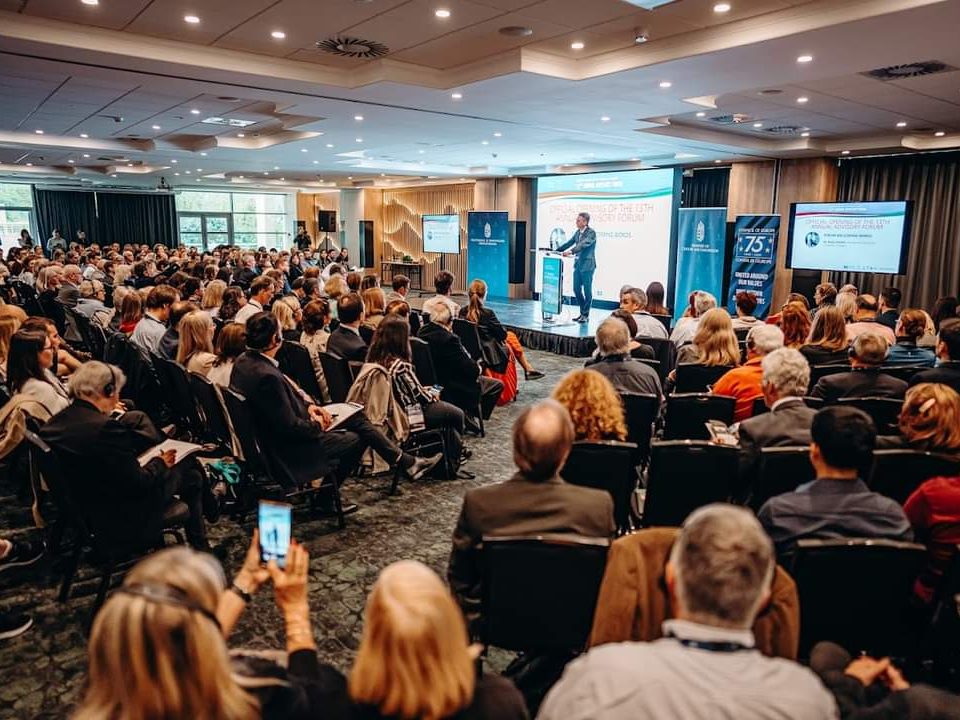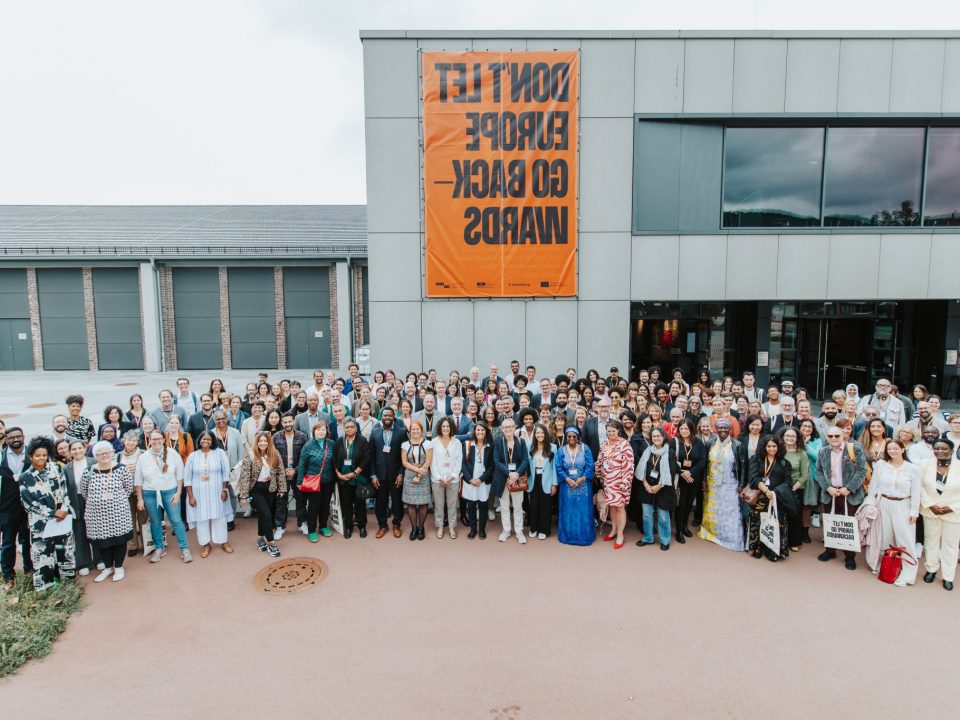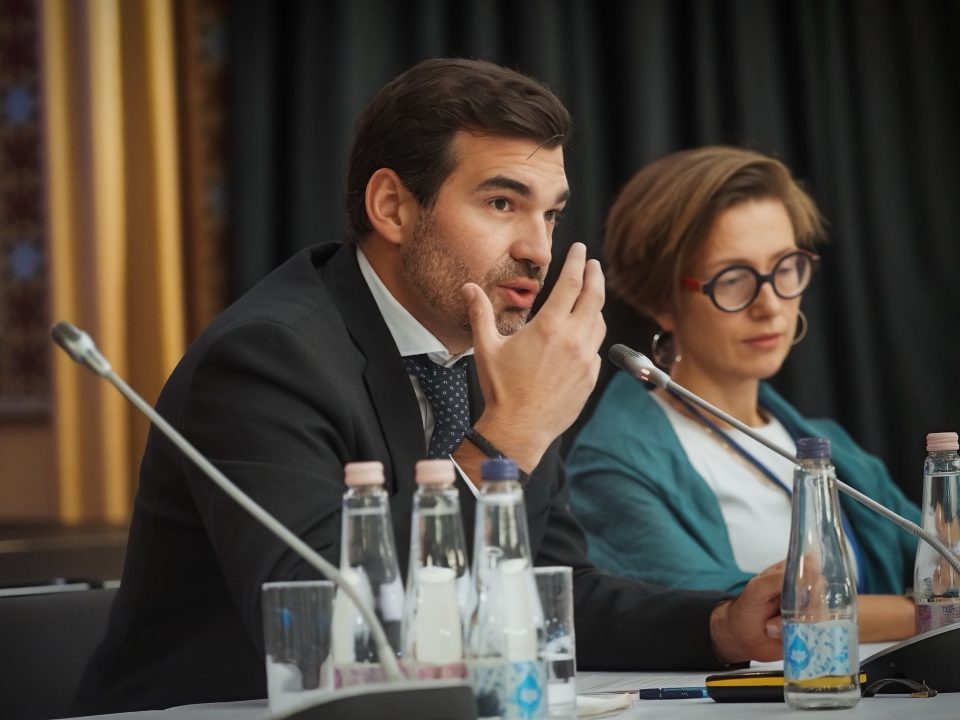- Filter by
- Categories
- Tags
- Authors
- Show all
- All
- AEPJ News
- Andalusia
- Austria
- Azerbaijan
- Balti
- Belarus
- Bendery
- Braunschweig
- Celle
- Chisinau
- EDJC old editions
- EDJC22
- EDJC23
- EDJC24
- EDJC25
- France
- Georgia
- Germany
- Girona
- Hannover
- Hildesheim
- Italy
- Izmir
- Lithuania
- Medieval Route
- Moldova
- National Route
- Orhei
- Padua
- Palaces, Villas and Country Houses
- Poland
- Regional Route
- Rhineland
- Rybnitsa
- Soroca
- Spain
- Thematic Route
- Tiraspol
- Turkey
- Ukraina
- Uncategorized
Between September 25 and 27, 2024, the AEPJ took part in the 13th Annual Council of Europe Cultural Routes Advisory Forum, held in the historic town of Visegrad, Hungary. Organized by the Enlarged Partial Agreement on Cultural Routes of the Council of Europe (EPA) and the European Institute of Cultural Routes, in cooperation with the Hungarian Ministry of Culture and Innovation and the Hungarian Open Air Museum, this year’s event focused on “Transmission and Innovation: Encouraging Youth Participation along the Council of Europe Cultural Routes.”
The Forum brought together over 400 participants from 40 countries, including delegates from CoE-certified routes, international organizations such as UNESCO and the United Nations, representatives from 41 member states of the EPA, as well as academics, tourism professionals, and civil society organizations.
Last week, the European Association for the Preservation and Promotion of Jewish Culture and Heritage took part in the 20th General Conference of the European Coalition of Cities Against Racism (ECCAR) held in Heidelberg. The conference, under the theme “Don’t let Europe go backwards,” gathered municipal leaders, human rights organizations, and civil society representatives to discuss strategies for combating racism and fostering diversity across Europe.
Federico Szarfer, project manager of the European Days of Jewish Culture, represented AEPJ at the conference. In collaboration with Robin Sclafani from CEJI (A Jewish Contribution to an Inclusive Europe), they led a participatory workshop to gather input for the NOA Guidelines on Fostering Jewish Life. This document, part of the NOA (Networks Overcoming Antisemitism) project, complements the EU Strategy on Combating Antisemitism and Fostering Jewish Life, focusing specifically on the local level by addressing municipalities and civil society.
The European Association for the Preservation of Jewish Heritage had the honor of participating in the sixth meeting of the Working Group on the implementation of the EU Strategy on Combating Antisemitism and Fostering Jewish Life, held on September 20-21, 2024 in Budapest, Hungary. This important international forum, organized in collaboration with the European Commission and the Government of Hungary, brought together experts, government representatives, and community leaders from across Europe with the aim of strengthening efforts to combat antisemitism and promote Jewish life on the continent.
AEPJ Director Victor Sorenssen was invited as a speaker at the forum, presenting the NOA Guidelines on Fostering Jewish Life. In his address, Sorenssen emphasized the critical importance of these guidelines for the strengthening and revitalization of Jewish life in Europe, highlighting how Jewish heritage and culture can play a decisive role not only in combating antisemitism but also in building vibrant and sustainable Jewish communities.
The annual training meeting of the European Routes of Jewish Heritage (ERJH), explicitly designed and aimed at the network of Route managers, reached its sixth edition (the fifth face-to-face) this September, from Monday 23rd to Wednesday 25th, hosted by the University of Oxford and Waddesdon Manor, the developers of the Palaces, Villas and Country Houses Route, based on a long term research project, Jewish Country Houses – Objects, Networks, People (JCH). On this occasion, the programme aimed to delve into the specificities of the members of the ERJH, providing more specific training in the different approaches the Incubator deals with.
Participants explored the process of creation and development of the JCH from its conceptualization, continuous research, the construction of a network of heritage sites and regular dissemination activities.
The third and final training of trainers of the MiDorLeDor Europe (MDLDE) project, developed with the support of the CERV (Citizens, Equality, Rights and Values) programme of the European Union, has taken place in the city of Berlin between Sunday 8th September and Thursday 12th, consisting of an intense work program designed to consolidate the learnings and the planning of the actions that will follow. These will consist of the deployment of the process of training for Jewish heritage educators, guides and mediators in the Upper Rhine area, between France and Germany, in southern Italy, connecting multiple localities with relevant Jewish heritage, many of which currently lack active communities; in Spain, interconnecting the Centro Sefarad Israel with the network of cities that work on the promotion of Jewish heritage under the umbrella of Caminos de Sefarad; in Greece, where the Jewish Community of Athens is in the process of creating the cultural route that will have its epicentre in the Greek capital; and in Poland, from Lublin, where Brama Grodzka TNN is developing the Shtetl Routes, which interconnects a vast area where shtetls were placed formerly and represents a great opportunity to involve Ukrainian professionals despite the current difficulties; and from Warsaw, where the Taube Center for Jewish Life & Learning has been rolling out the project since 2012 and intends to give it continuity by developing a full review on their previous programmes thanks to this co-learning process.
Erfurt, Germany, September 1, 2024 – The European Association for the Preservation and Promotion of Jewish Culture and Heritage officially launched the European Days of Jewish Culture 2024 today in the historic New Synagogue of Erfurt. This year, the EDJC is set to be Europe’s most extensive cross-border Jewish cultural initiative, with hundreds of events scheduled in more than two dozen countries from September through November.
The inauguration ceremony in Erfurt was attended by a large delegation from the AEPJ’s Board of Directors, including President François Moyse, Treasurer Patrick Bikard, Secretary General Assumpció Hosta, and Honorary President Claude Bloch. There was also a strong presence of AEPJ members and colleagues from other cultural routes, highlighting the collaborative spirit and shared commitment to preserving Jewish heritage across Europe.
The European Days of Jewish Culture 2024 is an annual celebration that unites communities across Europe in exploring and honoring Jewish heritage. This year’s theme, ‘Family,’ invites participants to delve into the many facets of Jewish family life, from traditions and values to stories of resilience and continuity. Through a variety of events, exhibitions, and educational activities, the EDJC 2024 aims to foster a deeper appreciation of the role that family plays in shaping Jewish identity and cultural legacy.
 The EDJC have been extensively reinforced by the collaboration with the National Library of Israel, which has acted as a means to develop all kinds of exhibition and educational materials, which have given an important added value to the festival while facilitating its celebration throughout the continent.
The EDJC have been extensively reinforced by the collaboration with the National Library of Israel, which has acted as a means to develop all kinds of exhibition and educational materials, which have given an important added value to the festival while facilitating its celebration throughout the continent.
The European Days of Jewish Culture 2024 will officially commence on the 1st of September, with a grand inauguration in Erfurt, Germany. This year’s festival, themed “Family,” will offer a rich variety of cultural activities across Europe, celebrating Jewish heritage through the lens of family traditions and histories.
This year’s opening ceremony will be particularly special as it coincides with the recent inclusion of Erfurt’s Jewish-Medieval heritage on the UNESCO World Heritage List. Following the decision by the World Heritage Committee in Riyadh on September 17, 2023, Erfurt’s Old Synagogue, Mikveh, and the “Stone House” have been recognized as sites of outstanding universal value. This prestigious title marks Erfurt as an essential part of human heritage, boosting its significance in international tourism and cultural preservation.
The third phase of the MiDorLeDor-Europe cooperative project meeting, organized by the AEPJ in partnership with the Taube Center for Jewish Life & Learning, Centropa, and the Jewish Heritage Network, was held in Warsaw from Monday, July 7th to Friday, July 12th. Over the course of 5 days, the project’s team of trainers engaged in intensive training sessions in preparation for an upcoming educator training program on Jewish heritage in several European countries. The main goal is to enhance the network of education professionals in Jewish heritage as part of the European Routes of Jewish Heritage initiative, focusing on the accuracy, quality of the experiences, awareness rising capacity.
The working blocks of the training have mainly dealt with strategies to:
- convey knowledge about Jewish culture & heritage in its diversity through personal stories, using testimonies, photographs, films, exhibitions, and various audio-visual materials;
- point out Jewish contribution to the target countries’ societies, making Jewish life visible, audible, and tangible;
- promote a balanced culture of remembrance, present means to combat antisemitism and promote tolerance, dismantle (cultural) barriers and fearful, biased contact, and to build bridges from the past to the present.









